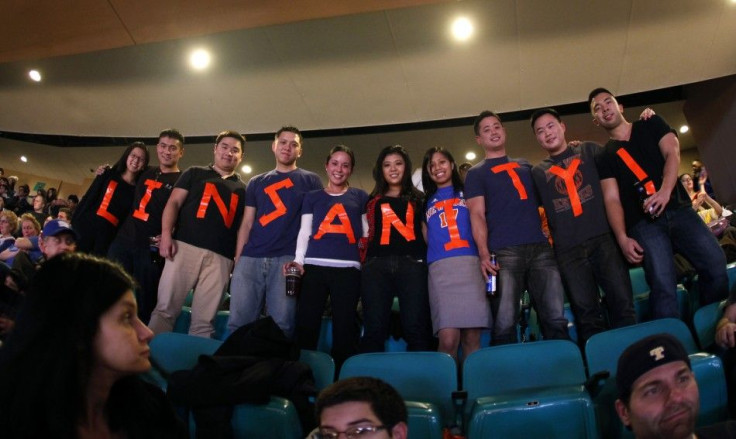Jeremy Lin: Who First Came Up With the Term Linsanity?

Out of all the puns that have been used to describe the popularity of Jeremy Lin, Linsanity has been used the most.
Who came up with the term?
Two people are claiming they said the term first.
Andrew Slayton of Los Altos, California has filed a trademark application for Linsanity. Slayton claims he coached Lin in high school and registered the domain names Linsanity.com and thejeremylinshow.com.
Slayton filed the application on Feb. 9.
Yenchin Chang of Alhambra, California has also laid claim to Linsanity. In a recent interview, Chang explains his decision, saying, I just wanted to be part of the excitement.
While both men are trying to cash in on Jeremy Lin's success, some say it will be hard for either one to do so.
Milord A. Keshishian, an attorney for a patent, trademark and copyright firm, said it will be hard for anyone trying to trademark Linsanity.
This looks like a bad-faith attempt to profit from Jeremy Lin's recent acclaim, said Keshishian.
It could be a financial windfall for anyone who's able to trademark the term.
Ring announcer Michael Buffer and his brother Bruce have made a fortune after trademarking the phrase Let's Get Ready to Rumble. The two formed Buffer Enterprises, and have made over $400 million in retail sales through licensing of the phrase.
Former Heat and Lakers coach Pat Riley trademarked the term three-peat after his team tried to win its third straight championship in 1989. Riley subsequently has made money from merchandise that uses the term.
There is a lot of money to be made on the rise of the Knicks point guard. Royalties from any type of apparel that bears the term Linsanity would go to anyone who successfully trademarks it.
Lin has the best-selling jersey in the NBA since his first big game on Feb. 4 against the Nets.
© Copyright IBTimes 2024. All rights reserved.






















